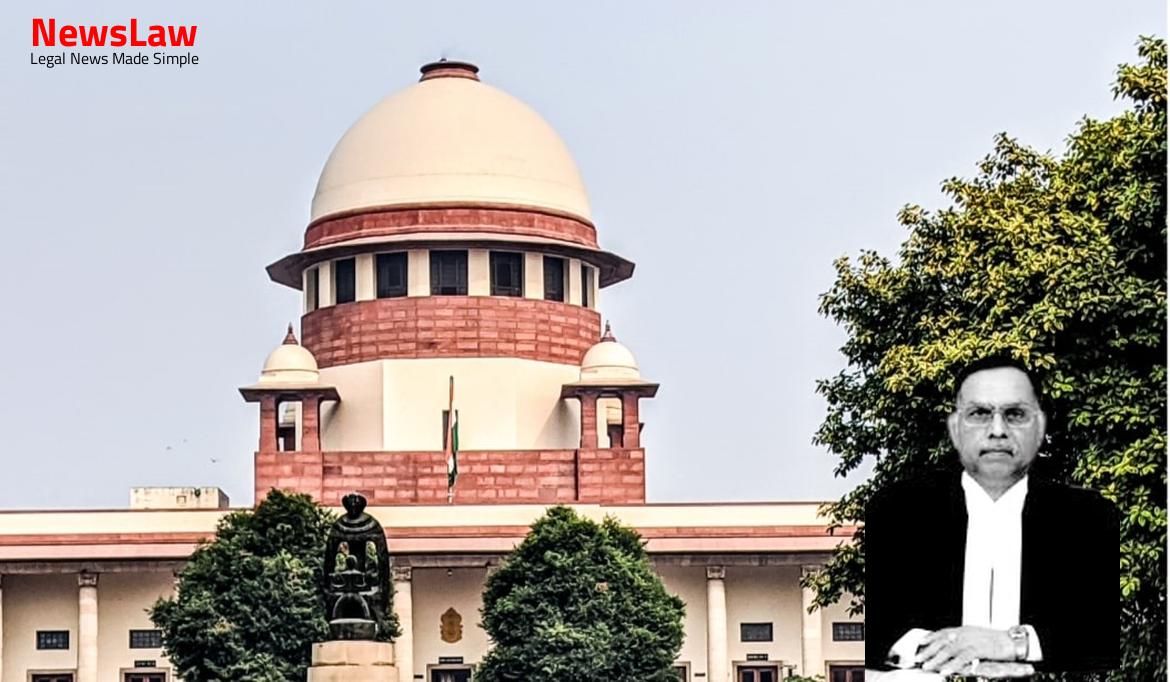Delve into the detailed legal analysis conducted by the High Court regarding the State Government’s involvement in the affiliation process for educational institutions. Examining the role of regulations and policies in maintaining educational standards. Discover the nuances of decision-making processes involving AICTE approval, State Government permissions, and university affiliations.
Facts
- High Court of Telangana issued interim orders on 5 October 2021, 25 October 2021, and 26 October 2021.
- The High Court held that JNTU seeking State Government approval before granting affiliation to approved courses by AICTE is against the decision in Jaya Gokul Education Trust case.
- The High Court directed JNTU to notify institutions during the second phase of counseling to allow student admissions to courses.
- The Commissioner of Technical Education requested the Government to examine the request of institutions for new courses/intake variation in existing engineering colleges.
- A batch of petitions in High Court challenged the affiliating University’s requirement for an NOC from the State Government after AICTE approval.
- JNTU sought State Government approval for granting affiliation to new courses/increasing intake for 2021-22.
- Approval of AICTE was granted, but final affiliation was subject to infrastructure and faculty verification.
- Institutions sought AICTE permission for increasing intake capacity in emerging engineering areas or for new courses.
Also Read: Electoral Malpractices in Mayor Election
Arguments
- The importance of the role of the State, as highlighted in subsequent court decisions including JNTU.
- It was deemed inappropriate for the High Court to issue an interim direction for student counseling without the NOC from the State Government or completed affiliation process.
- The decision in Jaya Gokul Education Trust has been further analyzed in subsequent rulings and distinguished.
- JNTU argues that their regulations involve the State Government’s role, requiring an NOC to consider local needs and compliance with state policies.
- Mr. S Niranjan Reddy argued that the challenge before the High Court was based on JNTU’s requirement for NOC from the State Government before proceeding with affiliation process, despite approval from AICTE.
- Institutions do not dispute JNTU’s statutory authority for affiliation process, but argue that seeking NOC from the State Government after AICTE approval would conflict with central legislation governing AICTE.
- Regulations 5.5, 5.6, and 6.1 of JNTU are crucial in this dispute, stating that after AICTE approval, colleges/institutes must obtain State Government permission and apply for university affiliation before the prescribed cut-off date annually.
Also Read: Balancing Power and Transparency: Electoral Bonds Struck Down, Disclosure Mandated
Analysis
- Regulation 5.5 mandates permission from the State Government after obtaining or awaiting AICTE approval.
- The refusal to grant NOC by the University for new institutions in Hyderabad with existing pharmacy courses was justified.
- Regulation 5.6 requires State Government permission for establishing new colleges or programs.
- Regulation 6.1 makes it mandatory to obtain State Government permission for new courses or increasing intake capacity.
- It is important to maintain education standards and prevent substandard education by limiting course offerings.
- State Government involvement is crucial in decision-making for new institutions and courses.
- Regulations emphasize the role of the State Government and University in setting standards higher than AICTE requirements.
- It is crucial to follow the proper process with State Government and University NOCs before affiliation.
- Section 20 provisions aim to balance educational needs and prevent excessive institution growth.
- Issuing judicial decisions prematurely can harm students if affiliation is eventually denied, hence proper permissions are necessary.
- Prior permission from the State Government is mandatory for starting new programs or colleges, in accordance with regulations and State policy.
- State had not granted NOC nor had JNTU granted affiliation when High Court passed interim orders
- Higher Education (TE) Department of Telangana granted NOC on 1 November 2021
- Affiliation process by JNTU is yet to be completed
- Issuing interim direction allowing participation in counselling can lead to admission issues if affiliation is denied later
- The interim direction cannot be sustained
- The balance of convenience lies in favor of the respondents
- No prima facie case has been made out by the petitioner for the interim relief sought
- The petitioner has not established a strong likelihood of success on the merits
Also Read: Recall of Resolution Plan Approval: Legal Analysis
Decision
- State of Telangana granted NOC on 1 November 2021
- JNTU to complete affiliation process within ten days
- Affiliation process to include verification and inspection of infrastructure
- Affidavit to be filed before the High Court of Telangana indicating outcome
- Interim direction of High Court to stay until affiliation process is complete
- High Court to be informed of result of affiliation process for each institution
- Court has not mandated breaching AICTE prescribed timelines
- Interim order to stay until final result of affiliation process
- Compliance with AICTE requirements for completion of admissions
- High Court to pass appropriate orders based on decision of affiliating University
- JNTU committed to completing affiliation process within specified timeline
Case Title: JAWAHARLAL NEHRU TECHNOLOGICAL UNIVERSITY Vs. CRESCENT EDUCATIONAL SOCIETY (2021 INSC 757)
Case Number: C.A. No.-006931-006931 / 2021



